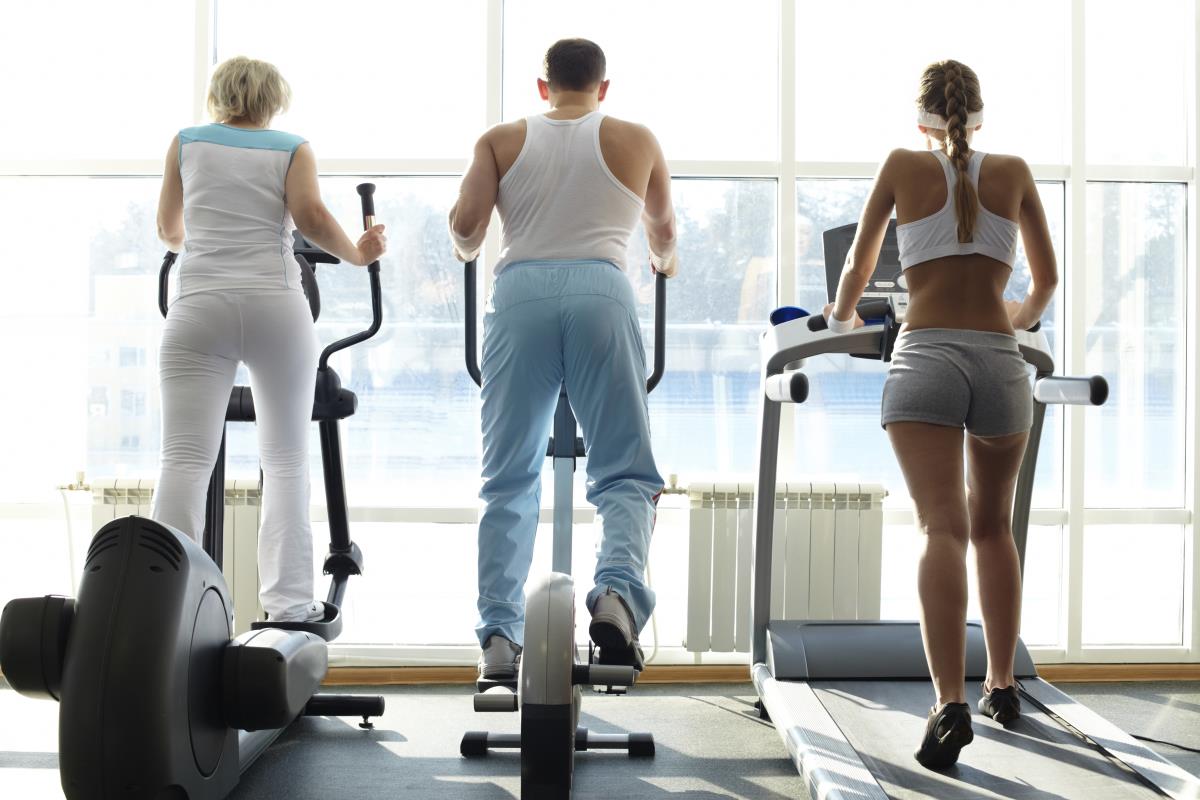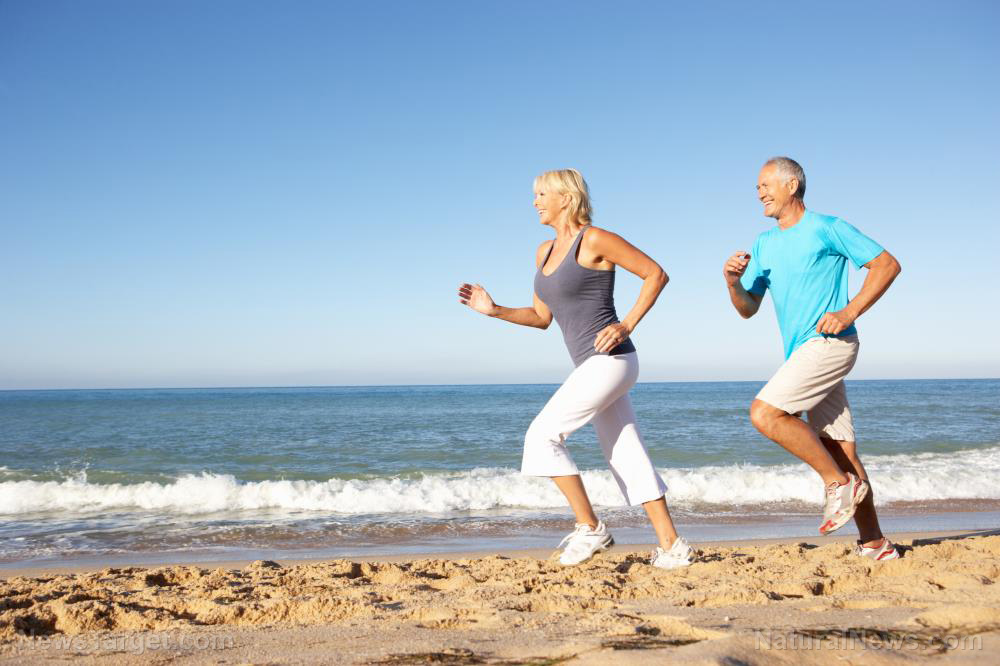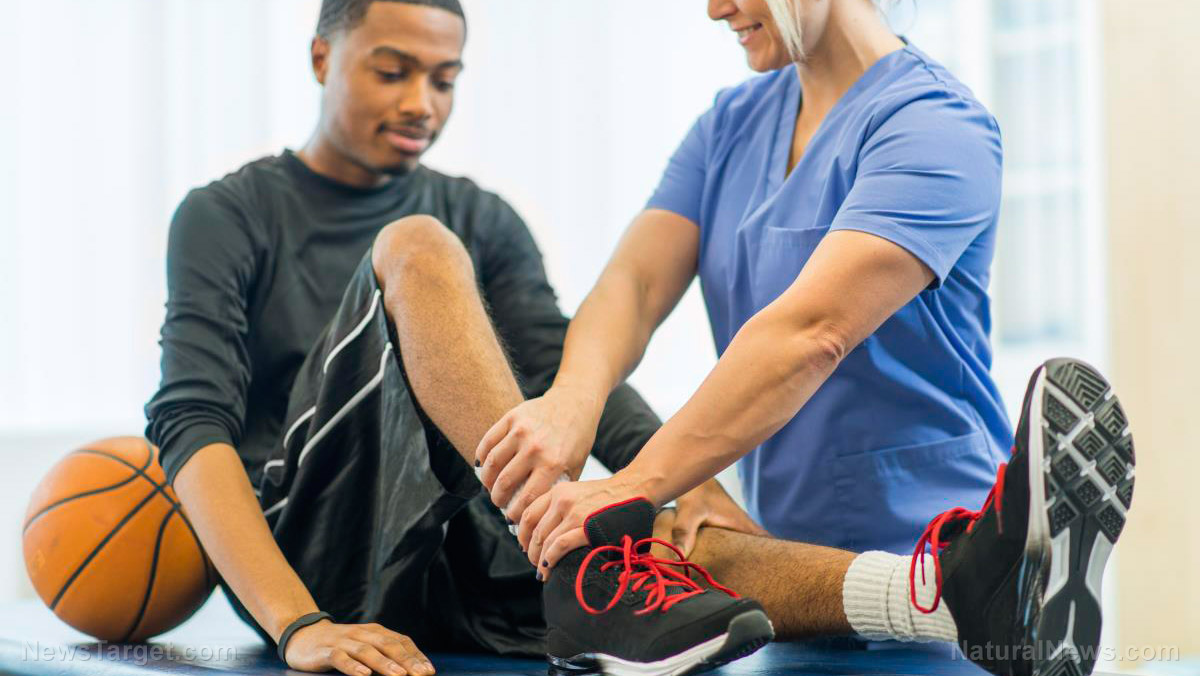Working out to work it out: Exercise endorphins found to help fight depression
05/13/2019 / By Isabelle Z.

When depression strikes the elderly, it doesn’t always get the attention that it does in younger people. After all, it’s widely considered normal to feel negative emotions as people get older and deal with issues like failing health and the end of their lives inching closer. When depression in seniors is taken seriously, it’s usually addressed in the form of a prescription for antidepressants, which can make the problem even worse. Now, however, a study has found a safe and effective depression-fighter for older people in the form of exercise.
Whether you exercise regularly or not, you’re certainly familiar with the amazing feeling you get after a good workout or some vigorous physical activity. As you get older, however, your physical activity tends to drop, whether it’s because of time constraints or physical ones. Unfortunately, that may be just when people need to exercise most of all. Researchers from McMaster University have found that the same mechanisms that make you feel so good after exercise when you’re young are still at play in your twilight years, and staying active is an excellent way to fight depression as you age.
Although it had been believed that the muscle deterioration that comes along with aging might prevent the elderly from getting these benefits, it is now safe to say that isn’t the case thanks to this study, which was published in the American Journal of Physiology – Cell Physiology.
Research shows that physical activity can help activate genes in skeletal muscle that affect the metabolic pathways promoting chemicals in the brain that enhance your mood, such as serotonin. Elderly people often experience muscle loss, which means that pathway can become restricted and raise their risk for depression even further.
In the study, men over the age of 65 carried out a 12-week program of high-intensity interval training on a stationary bike one time per week along with biweekly strength training sessions. After analyzing their muscle changes and blood samples, the researchers found that the expression of the genes in their skeletal muscle had been enhanced.
Lead author David Allison explained: “Even individuals who are already metabolically healthy — with good weight, good blood pressure and blood sugar levels — need to prioritize regular physical activity to maintain or improve upon their mental health.”
Other studies support recent finding
Supporting this theory is a study that was recently published in JAMA Psychiatry. Researchers from Massachusetts General Hospital examined the genetic data of 300,000 adults for the study. They found that those who had higher levels of physical activity had a lower chance of having major depressive disorder. In fact, they revealed that replacing sedentary behaviors with just 15 minutes of vigorous activity on a daily basis could lower the risk of depression by 26 percent. Any activity, they say, is better than doing nothing. Moreover, they did not find any evidence that those diagnosed with depression are unable to exercise.
Of course, they emphasize that getting people to actually comply with the advice to exercise can be challenging, especially among those who lack motivation. The researchers also want to explore how much physical activity is needed to benefit groups considered at a higher risk of depression, such as those enduring stressful situations or those with a genetic vulnerability to depression.
The takeaway of these studies is very clear: Not only can exercise help address depression when it strikes, but regular physical activity can prevent it from occurring in the first place. It’s easy to find excuses not to be active, but if you want to keep your mood high, it’s time to start moving and getting those exercise endorphins flowing!
Sources for this article include:
Tagged Under: aging secrets, alternative medicine, beat depression, brain function, depression, elderly, exercise, fitness, longevity, mental health, mind body science, natural antidepressant, natural cures, natural medicine, old age, prevention, remedies, senior citizens, seniors, slender, working out



















